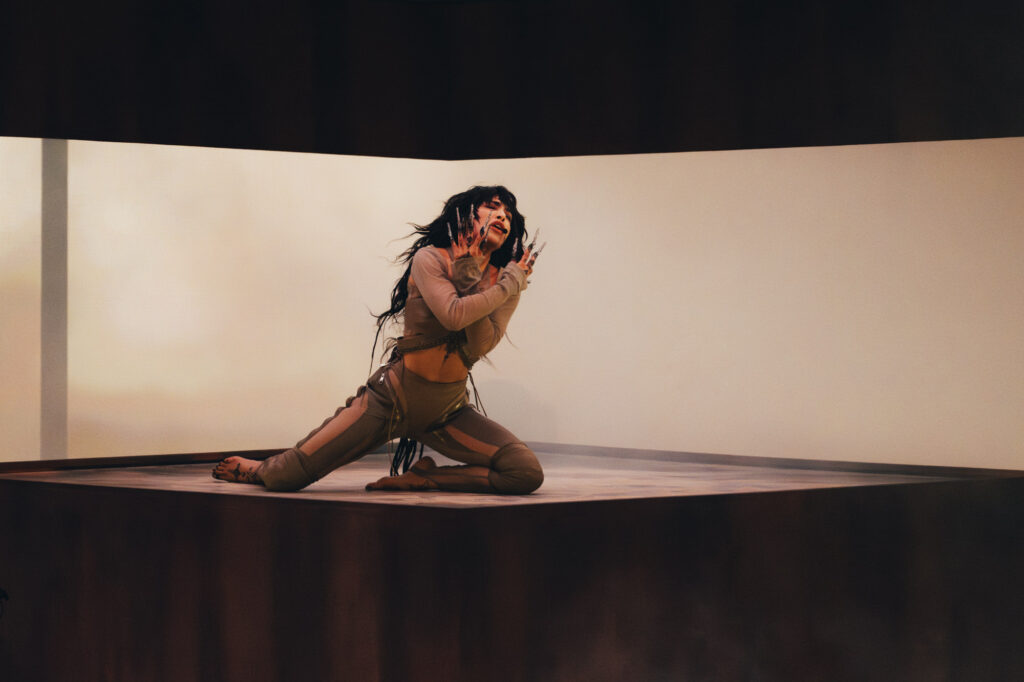Now Queer-Identifying, Can Sweden’s Eurovision Queen Reclaim Her Crown in Liverpool?
The wonderfully over-the-top music spectacle known as the Eurovision Song Contest has descended upon Liverpool this week, turning the Beatles’ hometown, at least for a few days, into the epicenter of unapologetic pop. It’s the first time in a quarter century that the UK has hosted Eurovision – normally this honor would have gone to the winner of the prior year’s contest, but with last year’s winner Ukraine, obviously preoccupied with more important things right now than hosting a campy tunefest, first runners up Britain have kindly stepped up to host this year on their behalf.
For Americans, this year marks a Eurovision first: we can actually vote and have our voices heard, as part of the new “Rest of the World” delegation. The viewer vote from every non-competing country will be combined to carry the same weight as the public vote from one competing country – which admittedly isn’t a huge stake, but it could mean all the difference in a close battle like this year’s smackdown.
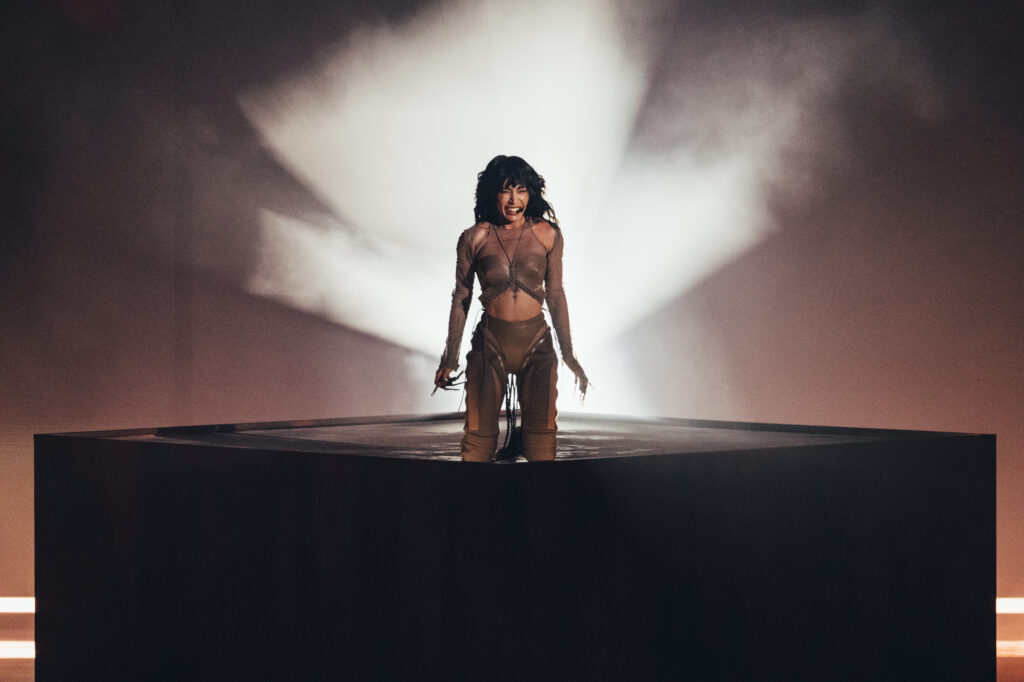
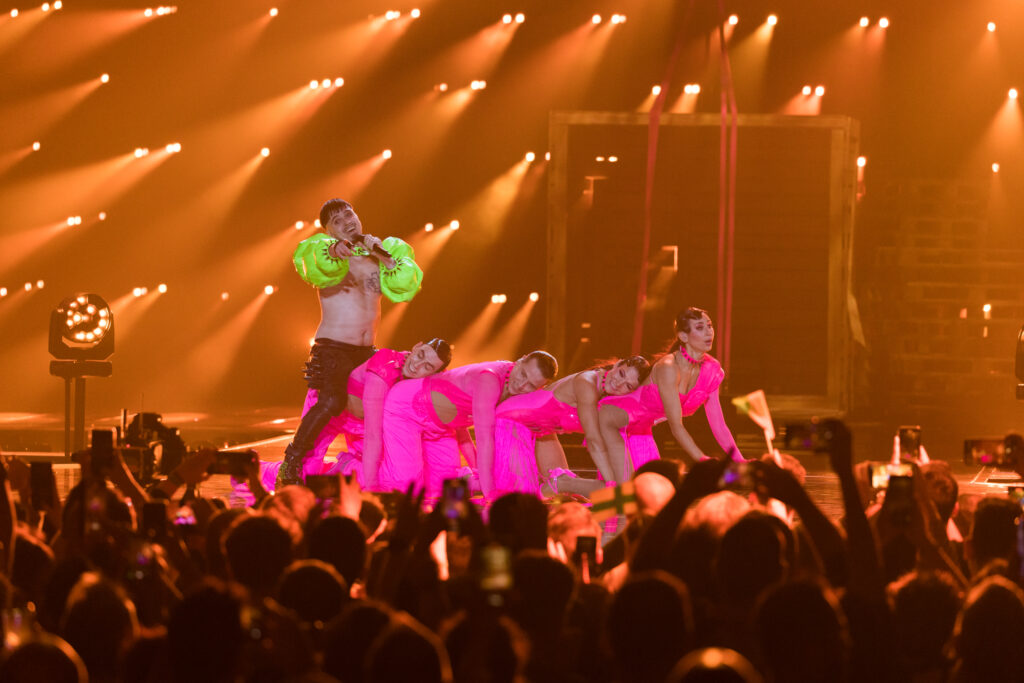
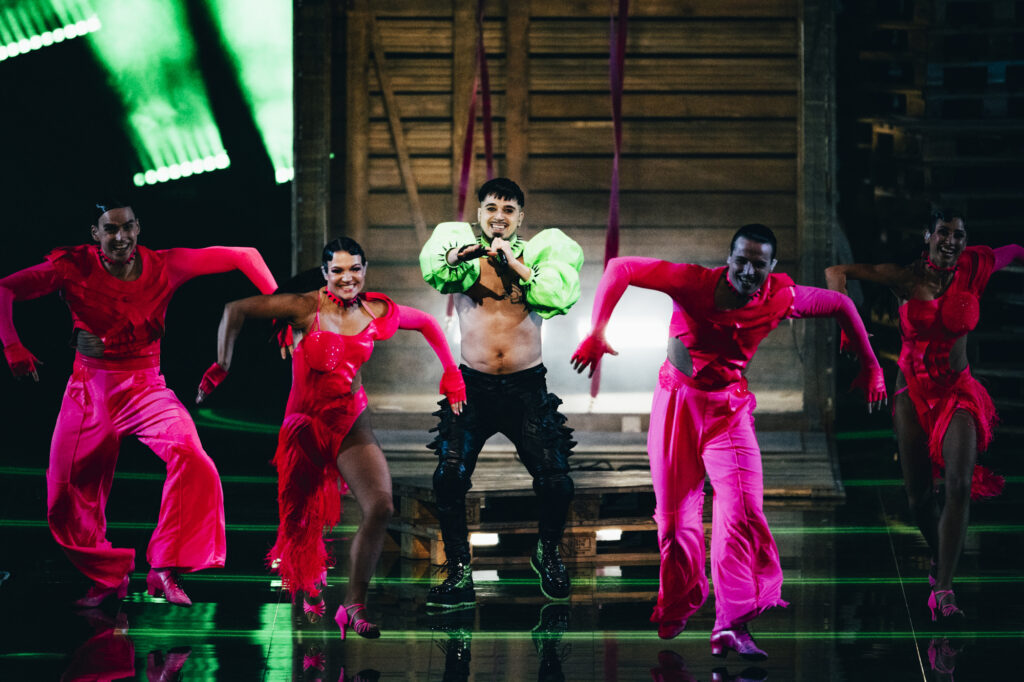
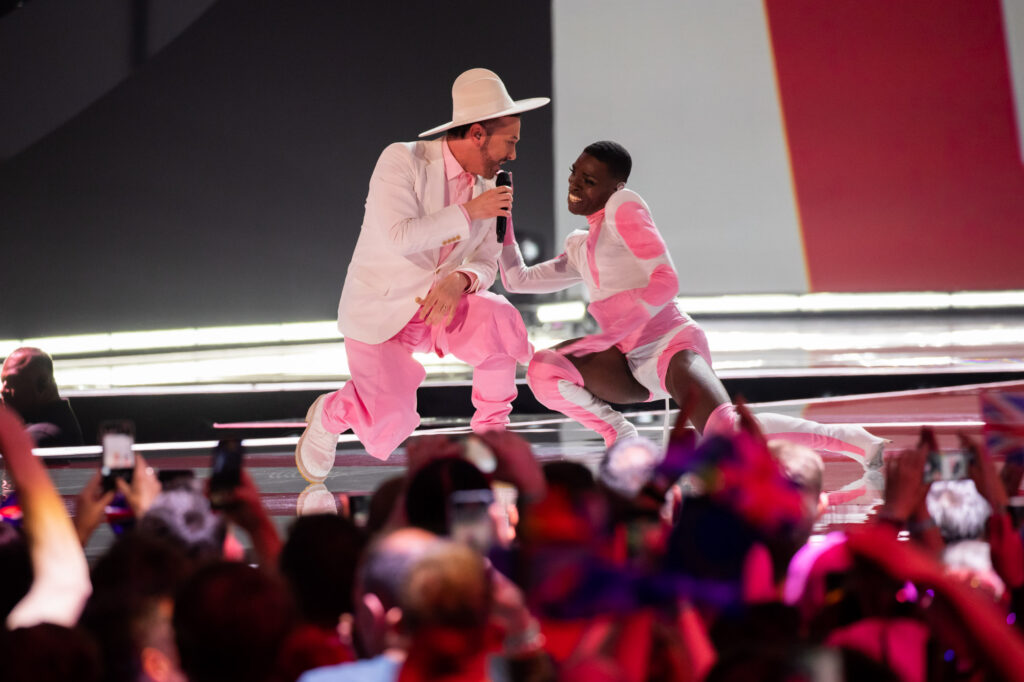
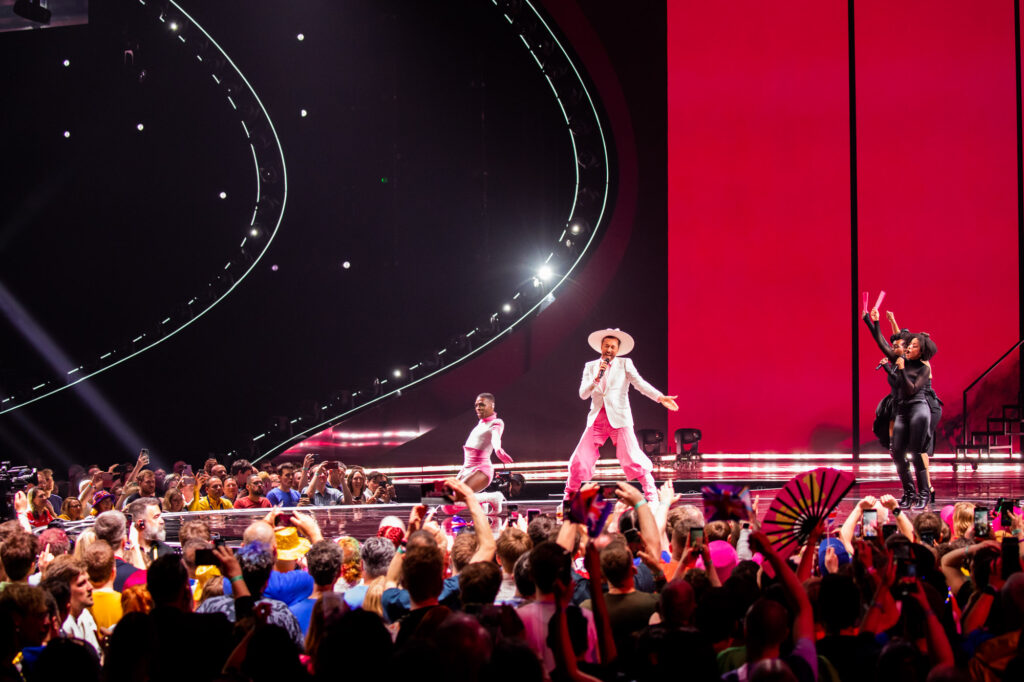
One thing that hasn’t changed a bit this year is that Eurovision Liverpool is chock full of LGBTQ+ deliciousness, starting at the very top. The bookie favorite going into tomorrow night’s final is Sweden’s Loreen, who won the contest in 2012 with her rousing “Euphoria,” which subsequently became a global dance hit (if you’ve been in a dance club in Europe or Australia over the last decade, you’ve absolutely heard it). Loreen, whose parents were Moroccan Berber immigrants to Sweden, came out as bisexual in 2017, sharing during a Swedish TV appearance that she believes “love is where you find it.” Loreen certainly isn’t the first Eurovision winner to return to the contest, but she’s absolutely the first to compete for a second time after having come out. The open question is whether her song this year, “Tattoo,” is strong enough for her to win again.
And despite Sweden’s long history of success at Eurovision – most notably with the 1974 win that launched ABBA’s superstardom – they face a stiff Cha-Cha-Challenge this year from next-door neighbor Finland and rapper Käärijä, who with his irrepressible energy, cheeky dance moves, and instantly recognizable lime green bolero jacket, looks perfectly poised to pull off a Loreen upset with his techno/rap/pop frenzy “Cha Cha Cha.” (Extra points for his uber-gay, bright pink-clad backup dancers.)
But if one thing’s for certain at Eurovision, it’s that nothing’s for certain until the contest’s live final actually happens and the voting – combined from the public and industry juries – is complete. Especially in a year like this where two countries seem about to go head-to-head, dark horses can easily break from the pack. One of those such contenders this year is Belgium’s openly gay singer Gustaph, whose super-catchy “Because of You” is clearly a gay anthem. And in case that wasn’t gay enough for the heavily queer viewing audience, Gustaph has enlisted Atlanta-based ballroom legend PussCee West to vogue across the Eurovision stage during his performance, something that absolutely ignited the Liverpool crowd during Thursday night’s second semifinal round.
Indeed, every single one of the openly LGBTQ+ entries at Eurovision 2023 – including Loreen and Gustaph, plus Serbia’s Luke Black and Norway’s Alessandra – managed to make it through their semifinal rounds to Saturday’s final, which is apparently a first for Eurovision. And then there are the not-actually-queer-but-still-pretty-darn-queer entries this year, like Croatia’s Let 3, who appear in quasi-drag during their performance of “Mama ŠČ!” The globally beloved Graham Norton will lend a further bit of gay oomph in his role as cohost for Saturday’s final. Several queer favorites from Eurovisions past will also perform noncompetitively, including Ukraine’s amazing drag act Verka Serduchka (who placed second at Eurovision 2007), Italy’s hot and sexually ambiguous Mahmood (who competed in both 2019 and last year), and the Netherlands’ out singer Duncan Laurence (who won the top prize in 2019).
For its part, Liverpool has played the perfect Eurovision host city this week, earning high marks from the international Eurovision hordes who’ve descended onto its streets. Literally every gay bar in town is hosting some sort of Eurovision-themed party (if not several), and earlier this week in Liverpool’s Chavasse Park, the city’s LGBTQ+ arts organizations Homotopia and DuoVision presented a three-day outdoor festival called HomoVision.
The Eurovision Song Contest final will stream live exclusively in the US on Peacock (Premium membership required at $4.99 a month). The festivities kick off promptly at 3 pm ET, noon PT on Saturday, May 13.

